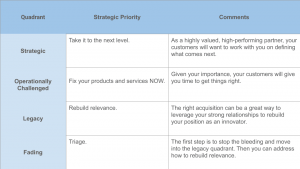— December 8, 2017
There was once a website who lived all alone in a tower in the forest, having been confined there by a wicked witch. Said the website, “If I do not get someone to rescue me, I shall surely die.” So she hired an SEO company to get her to the first page of Google. And suddenly, visitors started to stream through the forest and stop by the tower. Though the website looked longingly at the visitors, none of them rescued her. They left.
And the poor site pined in anguish until she died. The end.
~ The Brothers Grimm, circa 2017
Many website owners see the first page of Google as the Holy Grail. Reach it, traffic will flow to your site, and you will be healthy and wealthy forever more.
Many SEO companies cater to that mindset. Look across the web and you’ll find SEO agency sites that look like this:


Rank trackers abound. If you search for “seo ranking tracker,” you’ll have plenty of options.

But it’s all a waste of time.
The SEO agency sites that hype super-fast ascents to page 1 rankings tend to be the lower quality SEO companies. (While the agency I run provides our clients with reports on many metrics, we only provide ranking reports when the clients ask. But it’s probably more distracting than helpful.)
Why?
Because just like the poor website in distress in the forest, even if you get page 1 rankings, there’s zero guarantee that’s going to help your business.
Think for a minute: if you ranked at the top of page 1 for your business keywords, and you had 100,000 visitors a month, but no one bought anything or contacted you, would you be happy?
Not unless you have a masochistic streak.
Yes – often high rankings is a means to an end. Actually, it’s a means to a means to an end. High rankings should hopefully bring traffic. Is traffic an end? Nope. But lots of traffic should hopefully bring purchases, sign-ups or leads. That’s the end.
But do you measure the means or the end? Which one should you focus on?
If you’re a smart website owner, you’ll start at the end. What do you want visitors doing on your website? Buying your products? Filling out a contact form? Signing up for a free trial?
That’s the goal. That’s what you’re going to have to measure. And every “means” is going to have to report to that goal. Is it advancing that goal? Or not?
Any SEO agency worth its salt should be able to tell you: your revenue increased by 20% this past month. 50% of that revenue came from visitors from Google search. Last month only 40% of your revenue came from Google search visitors.
It’s often not as clear-cut as that, because people may find you through Google Search and then come back through a different source later to buy. But good SEOs watch and report on trends. Over the past few months, did search traffic increase or decrease? Did revenue/leads increase or decrease? Are your visitors staying on your website and reading more? Or is your website driving them away? How can we get you visitors who want what you have to offer? And how can we show them that and get them to buy or contact you – and not leave too soon?
Yeah, those results-focused companies sometimes charge more than the “we’ll get you to page 1 of Google” companies. Is it worth it? Or do you want to continue to pay into the Great SEO Rankings Hoax, and watch those numbers bounce up and down?
Our poor website’s story might have turned out differently had she hired a results-oriented SEO company. Something like:
So she hired an SEO company to get her visitors with a high chance of rescuing a website. And they fixed the website up to make her look attractive and appeal to visitors to rescue her. It took a little bit of time, but they kept an eye on what was happening and made adjustments to their strategy. The visitors got more and more relevant, and within a few months, the website was rescued by a charming visitor.
And she lived happily ever after. The end.
This post was based on a 2015 post on the Flagstone Search Marketing blog.
Digital & Social Articles on Business 2 Community
(39)




